How Americans feel about Trump’s mass deportations
In 2016, Donald Trump built his successful presidential campaign off the promise to “build the wall.”
In 2024, the newly anointed President-elect Trump won partially off a promise to deport millions of migrants living in the country illegally.
There’s a lot of uncertainty with how Trump’s promise of a deportation at an unprecedented scale would end up happening.
How might Americans react to this? Right now, polling shows that while most Americans support the mass deportation of undocumented immigrants, support could change as mass deportations become real, especially if it affects the labor market, prices of goods, or separates families.
Below are five charts on how Americans feel about immigration and how they might react to mass deportations.
- Animating force. As early as 2008, both parties had shared ground on immigration. Now, it’s an animating force for the GOP and polarizing for other Americans. Immigration as an issue helped Trump win the election, but it’s far from a unifying issue.
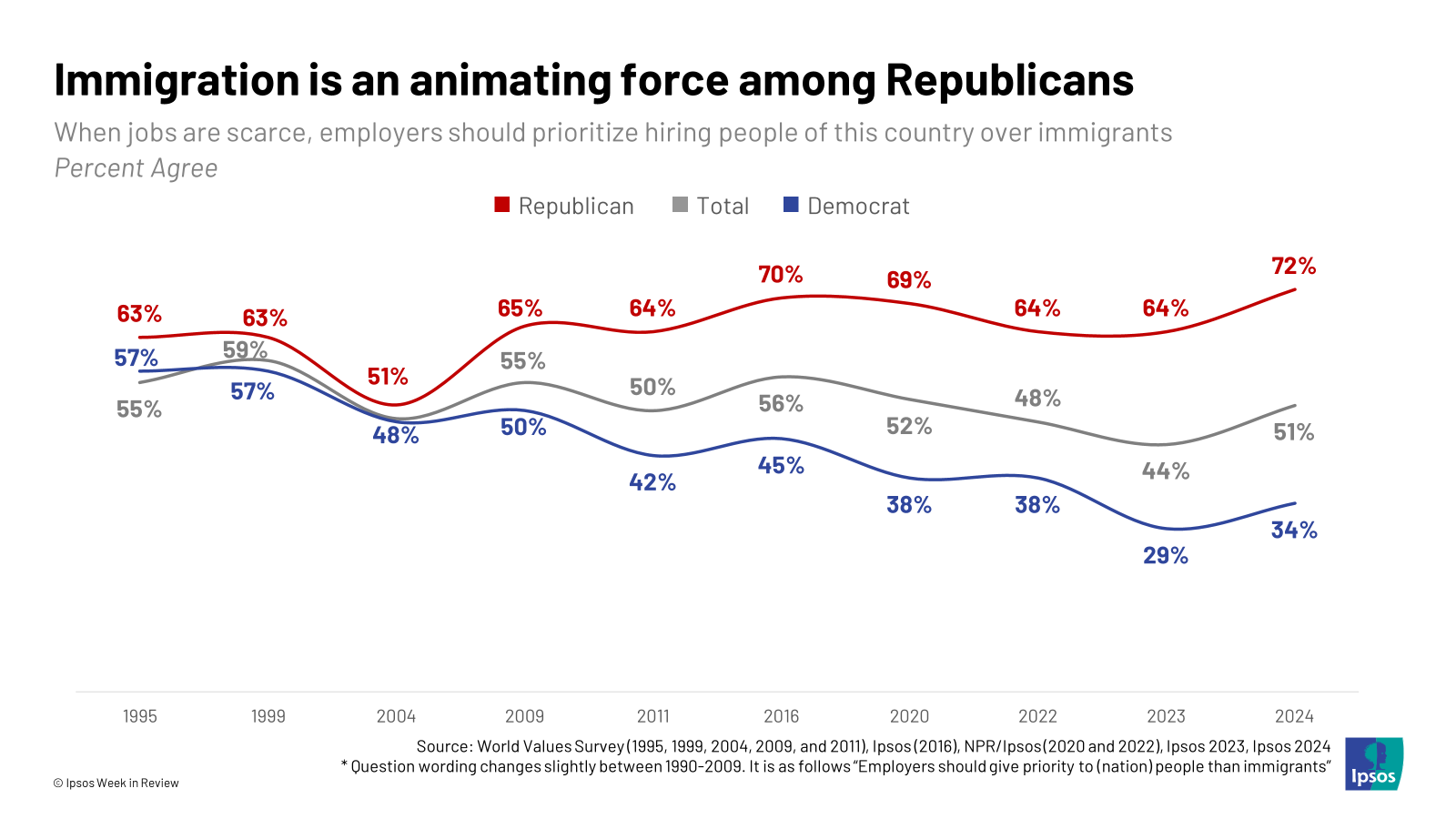
- A concern for some, but not all. A plurality of Americans voted with their wallets in 2024. Immigration ranks second as the issue Americans want Trump to focus on in his first 100 days in office, but combined, over half of Americans want Trump to focus on either inflation or jobs and the economy. The economy beats out immigration decisively. High prices are still top of mind.
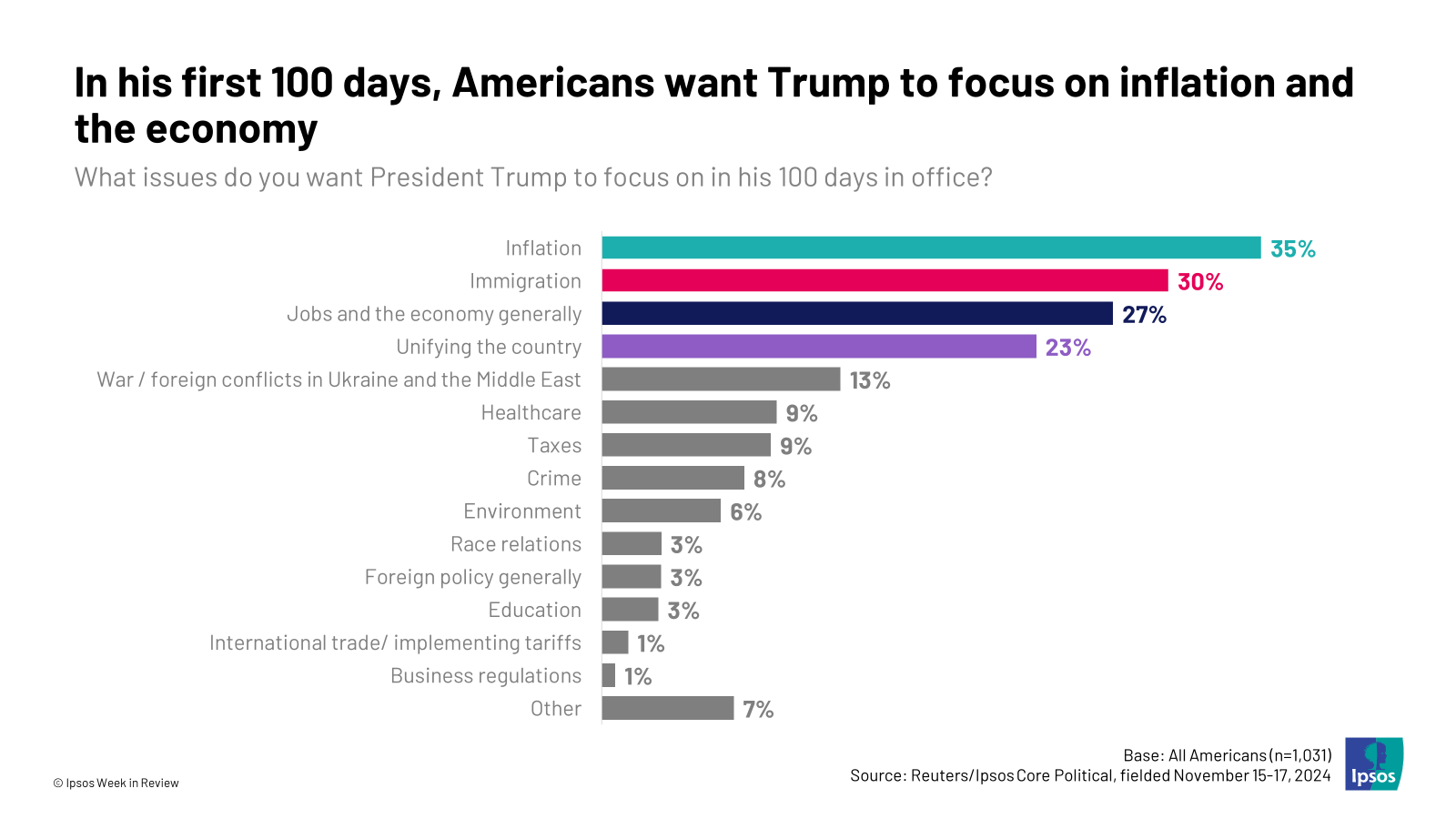
- Middle of the pack. Shutting down the U.S.-Mexico border is something that half of Americans say they support. But relative to Trump’s other promises, it ranks closer to the middle of the pack: lower in support than a peace deal between Russia and Ukraine but higher in support than culture war issues like restricting women from military combat.
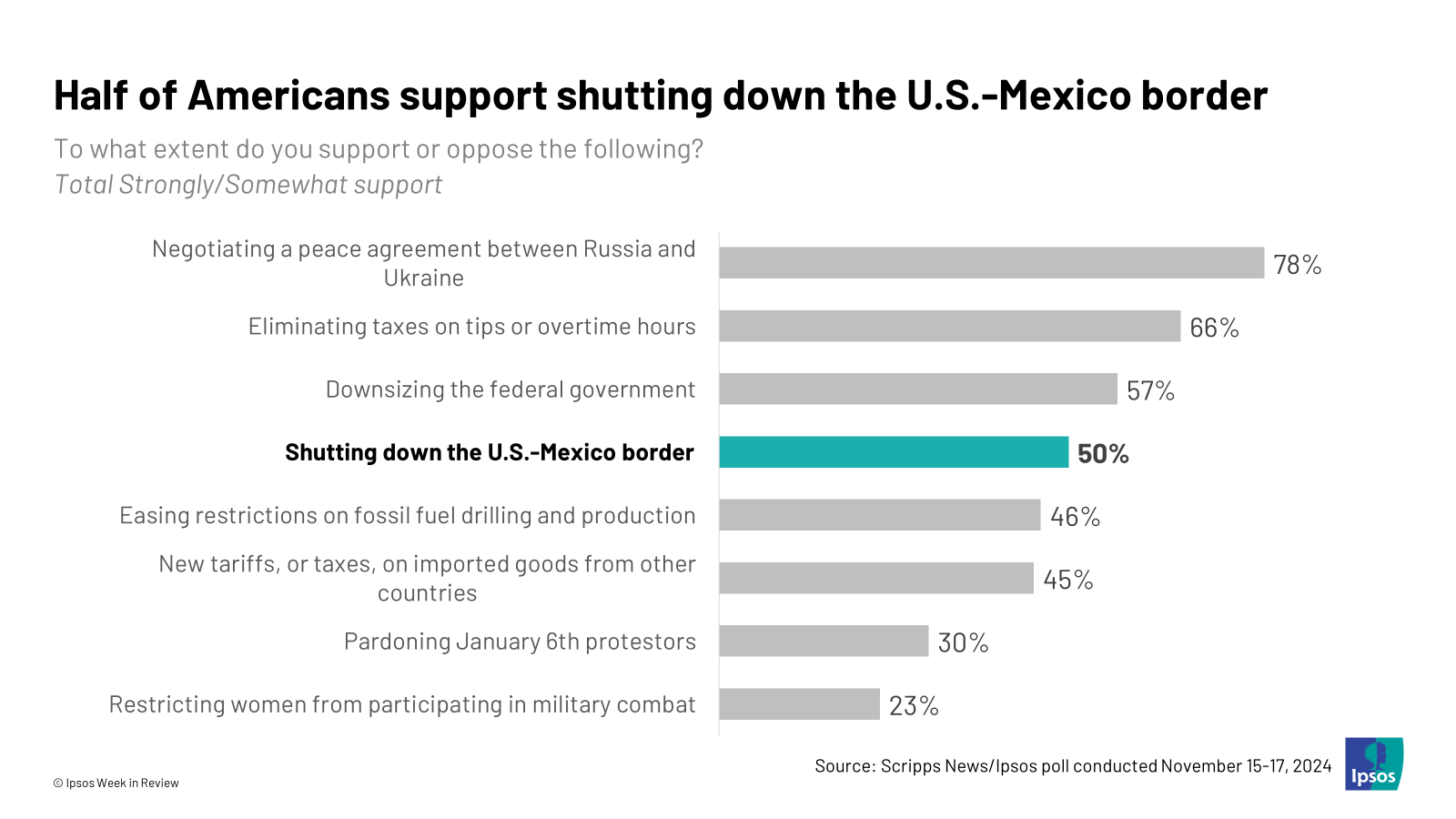
- Impacts on the economy, labor market. However, support for immigration policies isn’t a static. When the question is framed as impacting families, prices, and the labor market – something experts warn could be a consequence of the deportations – support drops. Could we see support for mass deportations drop as the consequences become more real? We will see.
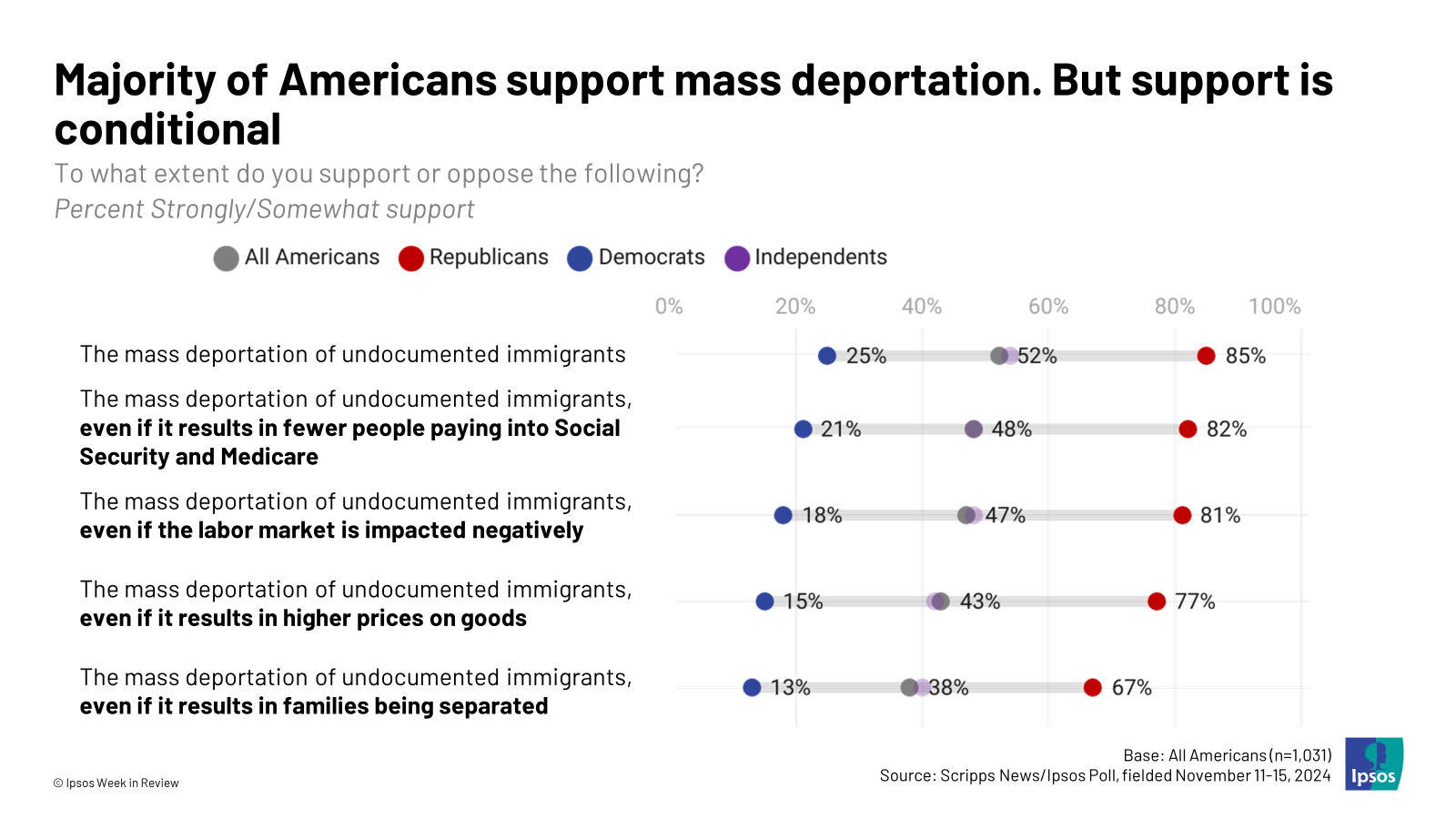
- Tenuous support. Support for mass deportations drops when Americans consider the consequences and means of implementing this policy. For example, when it comes to the means of executing a mass deportation campaign, support for using active-duty military or money allocated to the military is relatively low. If Trump involves the military in deportations, something he says he plans to do, will things change?
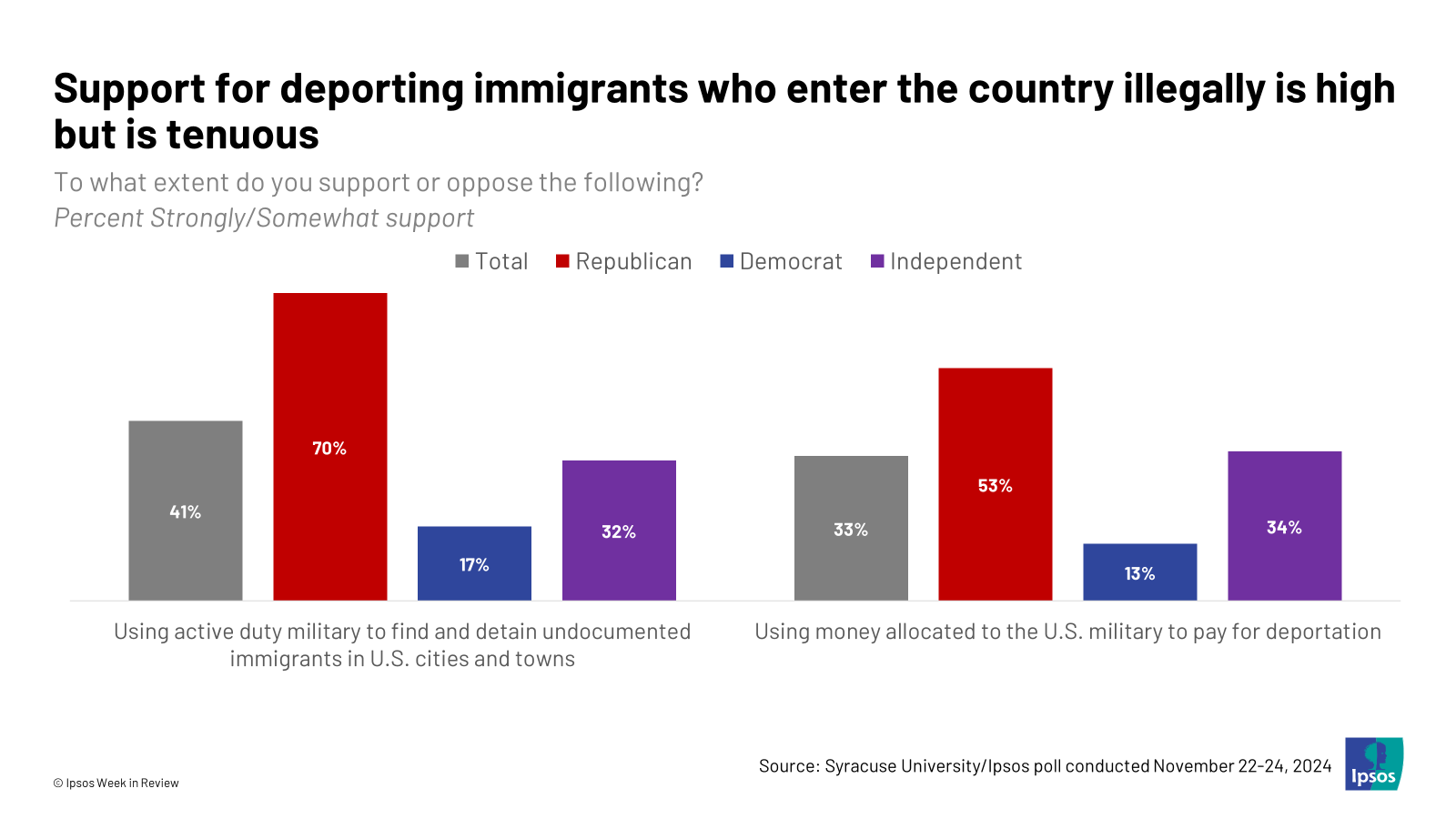
Immigration is an animating force for a portion of Trump’s base, but a polarizing issue for Americans at-large. In this election, most Americans voted with their pocketbooks, and accordingly, want Trump to prioritize addressing inflation and the economy first and foremost. But the immigration card will be a potent Trump card, so we should expect strong moves on it within the first 100 days.
As a result, Americans’ support of mass deportations is high, but tenuous. It will be worth watching how this level of support changes as the consequences that mass deportations could have on the economy, job market, and families become real. Watch this space.



